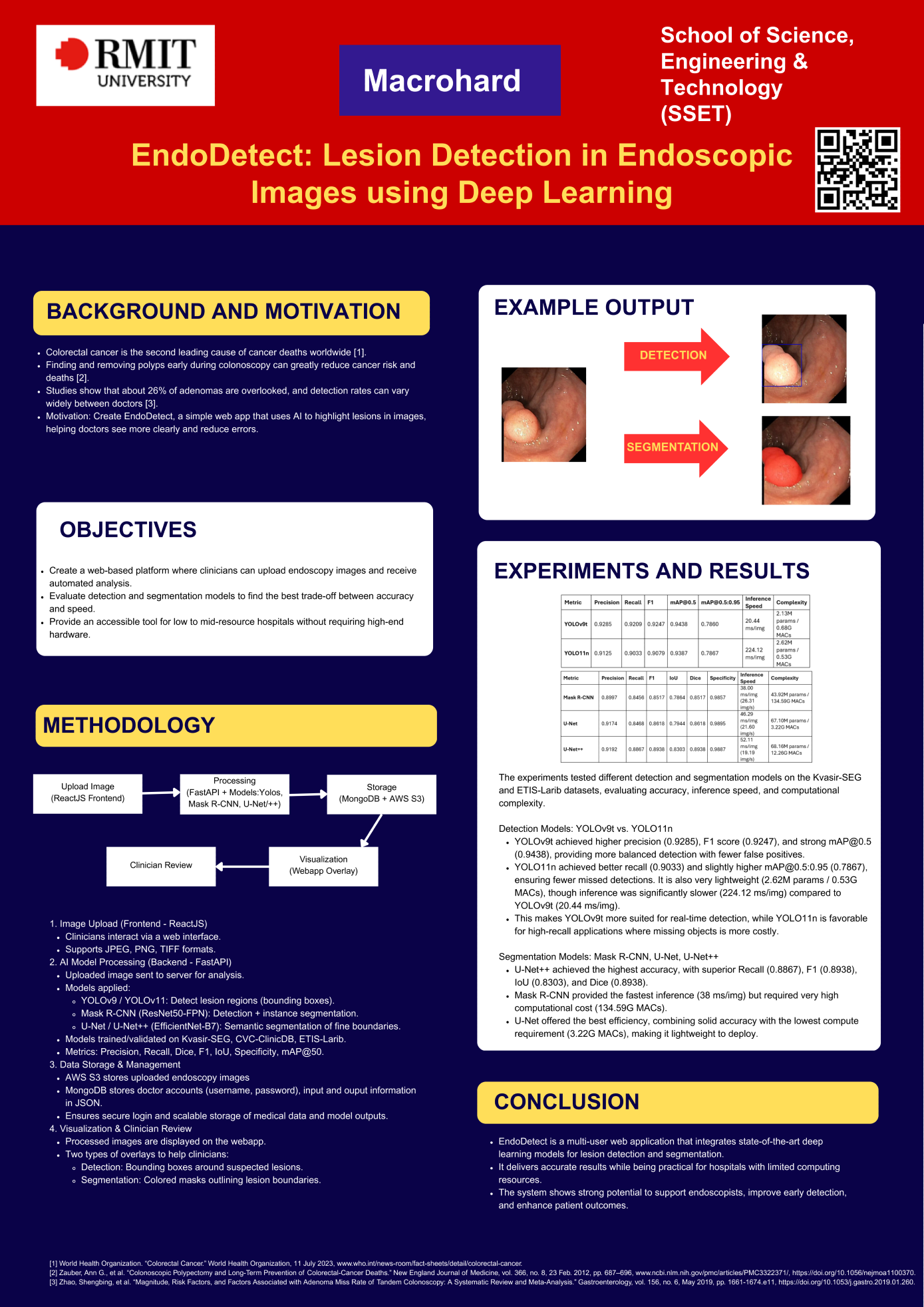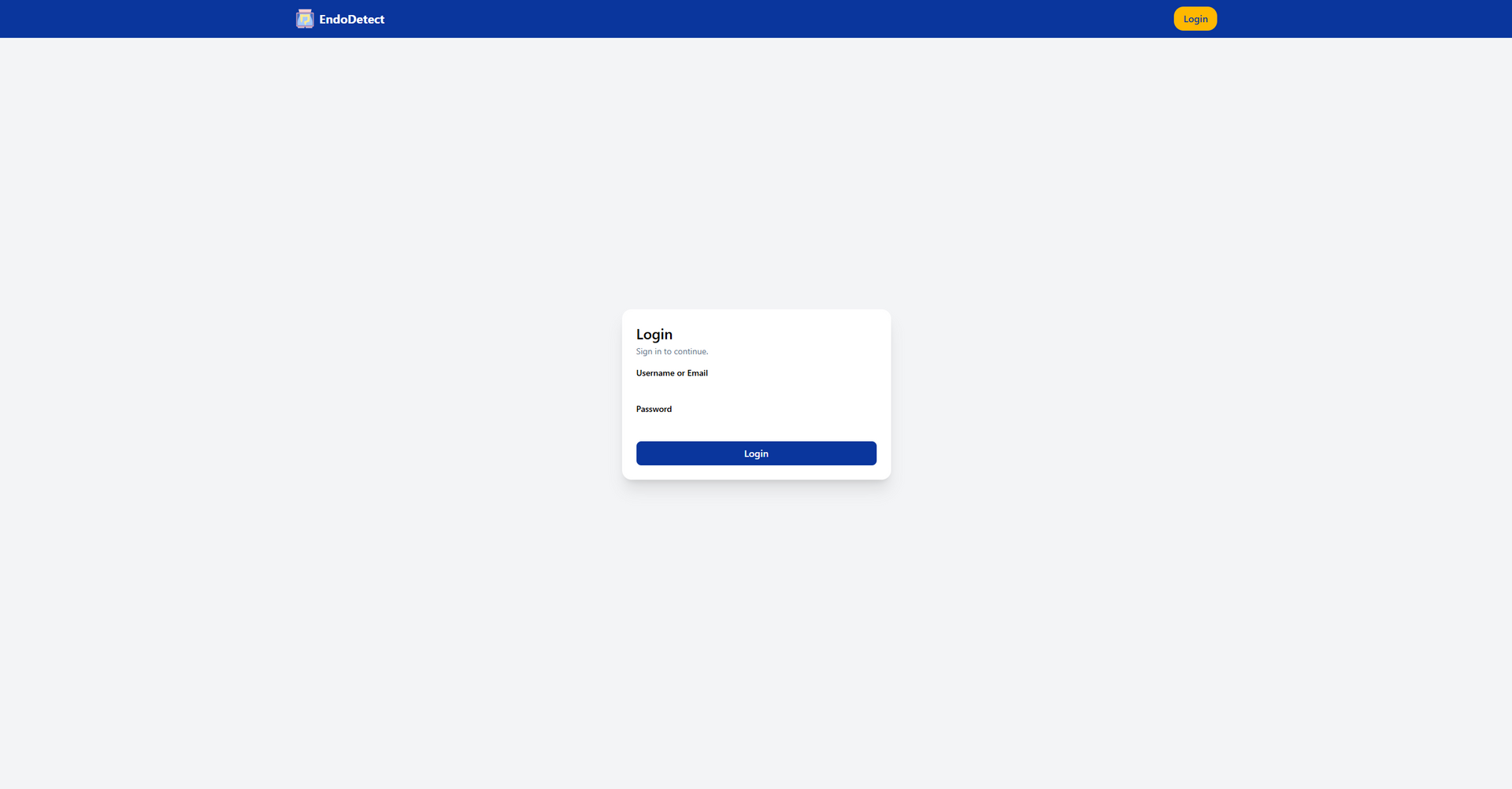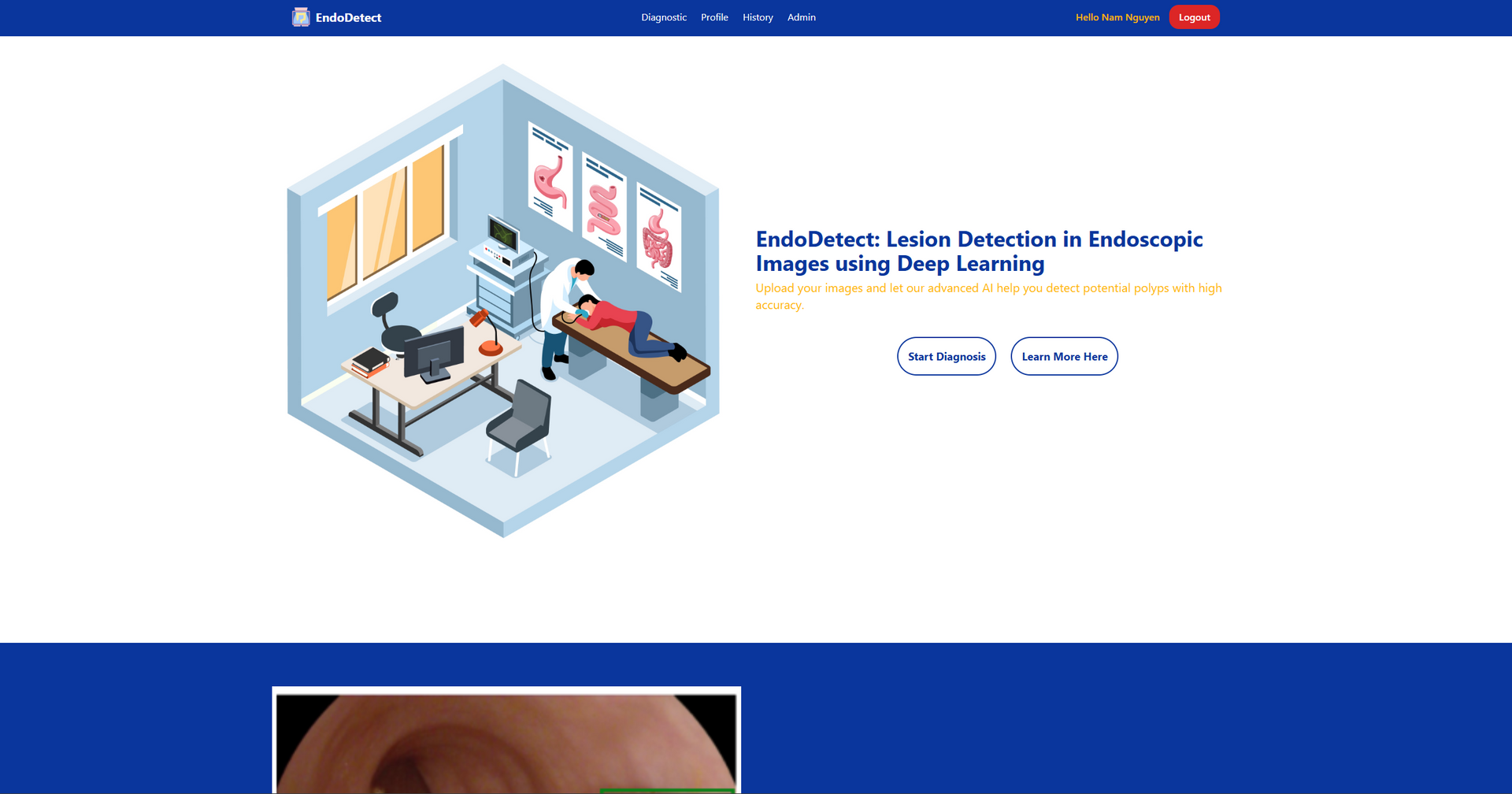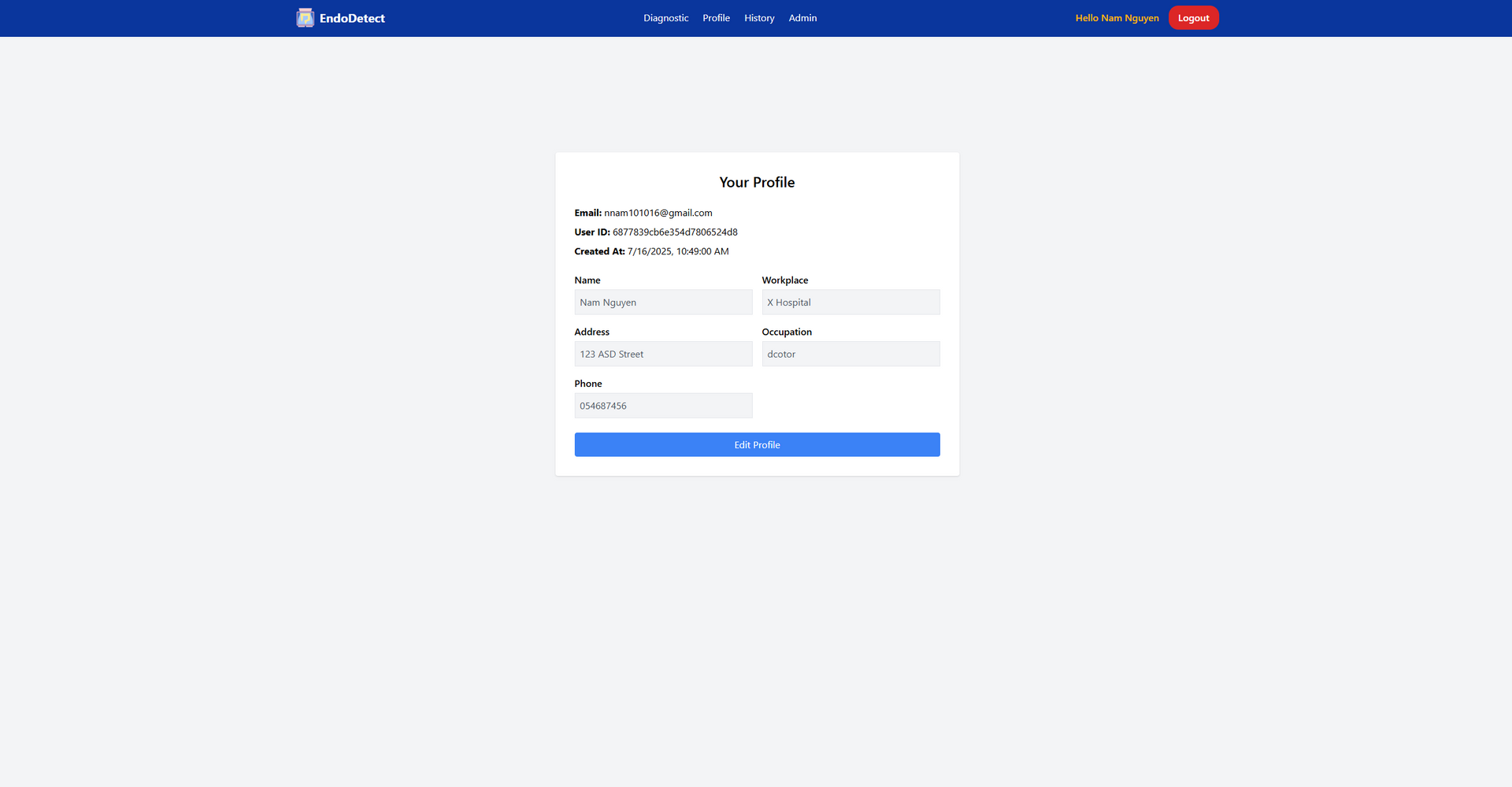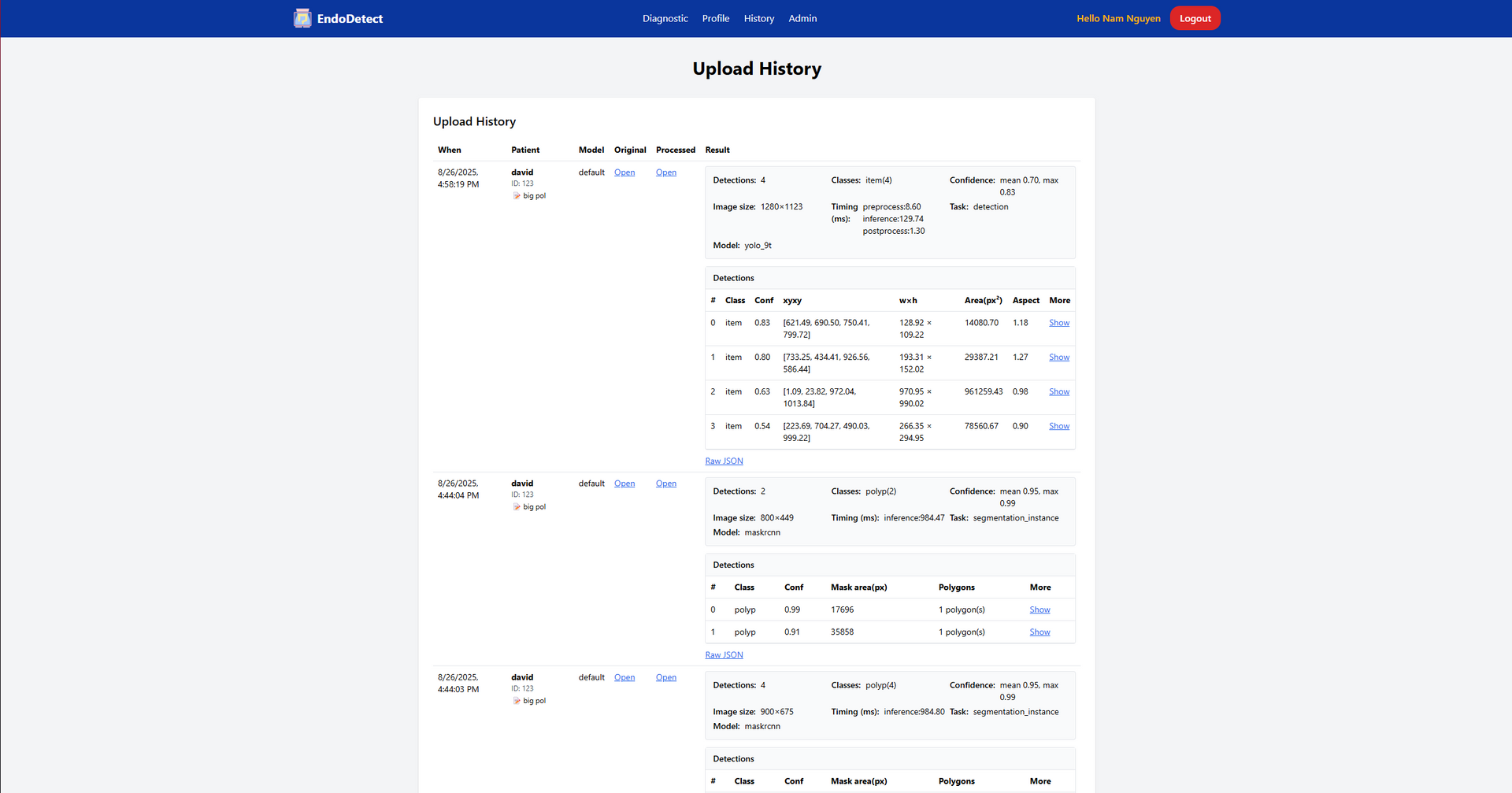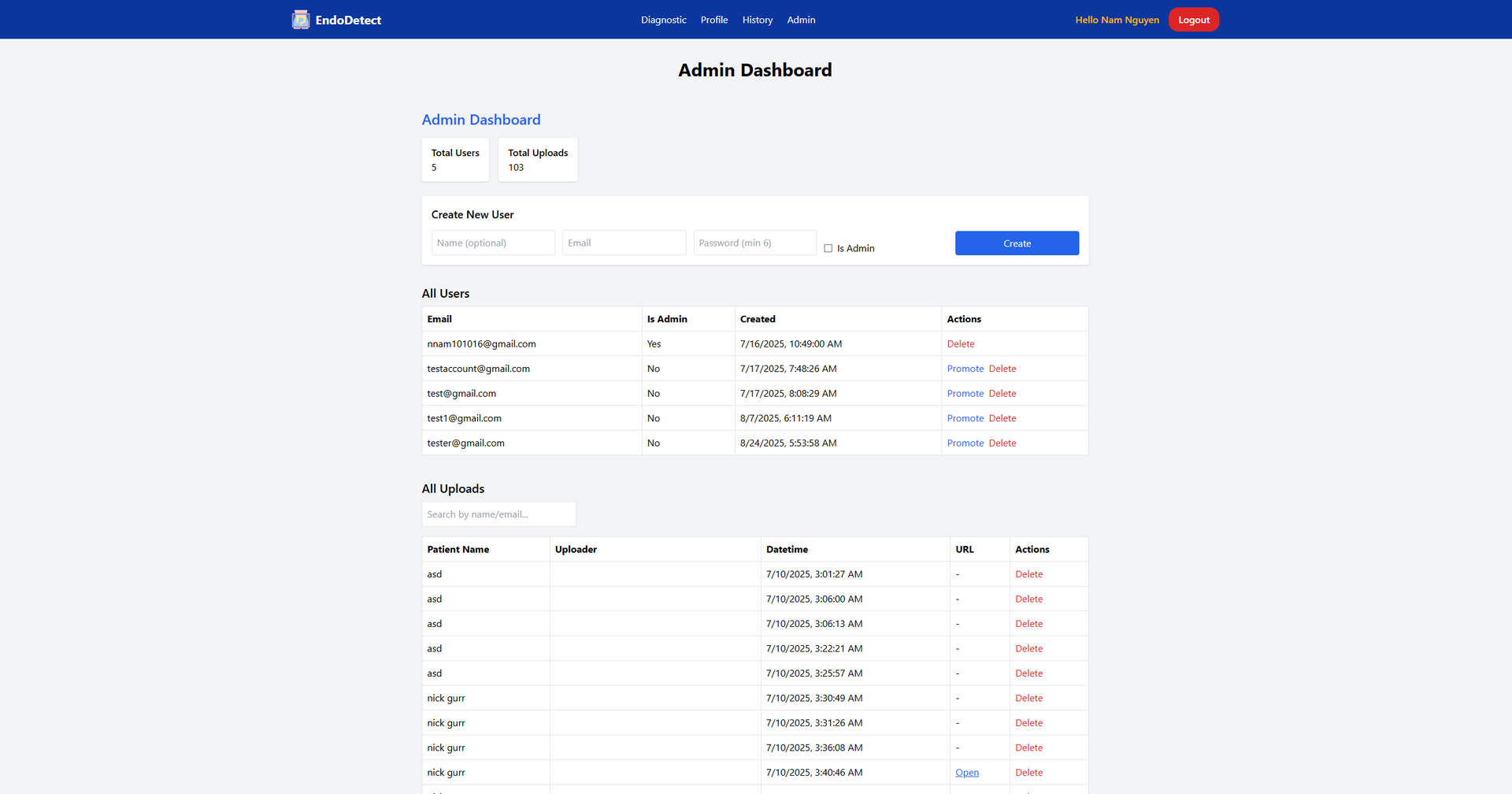EndoDetect: Lesion Detection in Endoscopic Images using Deep Learning
EndoDetect is an AI-powered system designed to improve the detection and segmentation of gastrointestinal lesions in endoscopic images. Its purpose is to support clinicians by enhancing diagnostic accuracy, reduce missed polyps, and provide faster, more reliable analysis. While traditional endoscopy relies heavily on human expertise, EndoDetect utilize advanced deep learning techniques to deliver consistent and more accurate results.
The project is trained on benchmark datasets Kvasir-SEG, CVC-ClinicDB, and ETIS-Larib, using advanced models such as YOLOv9, YOLO11, Mask R-CNN, U-Net, and U-Net++. Models performance are measured with metrics Precision, Recall, Specificity, Dice coefficient, IoU, F1-score, mAP@0.5, mAP@0.5:0.95, inference speed, and computational complexity to ensure clinical relevance and effectiveness.
EndoDetect is developed to be a multi-user web application with React, FastAPI, PostgreSQL, and AWS S3 for secure image storage and scalable deployment. It is designed to be practical for hospitals, including those with limited computing resources, helping improve early detection and patient outcomes.
